Aldo Sassi: The Philosophy of Coaching
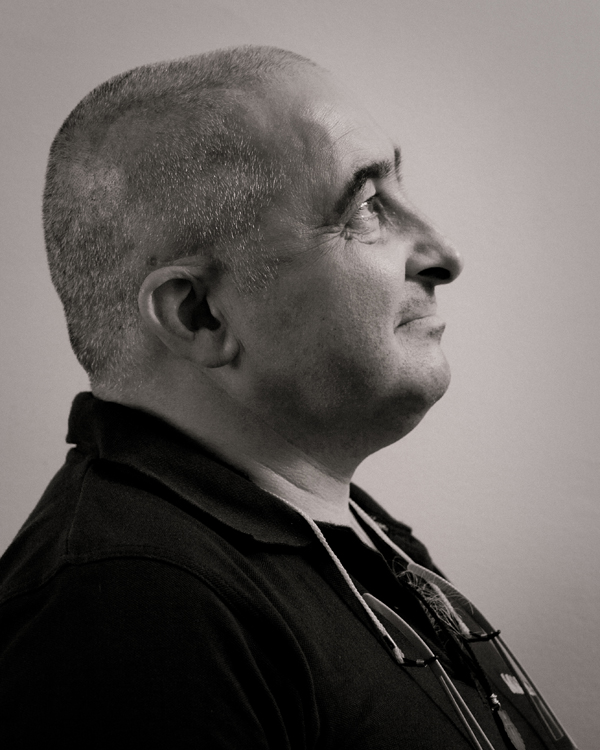
The world of cycling is mourning the death of Aldo Sassi. We can think of no better tribute to his memory than this first-person interview, conducted recently with Cycle Sport, on the ethics and beliefs behind his coaching methods.
Interview by Gregor Brown
Photos Richard Baybutt
Aldo Sassi has a reputation as one of the most trusted men in cycling thanks to his transparent approach to coaching. Over the last 25 years, he has nurtured this reputation, which was the backbone of the Mapei team from 1999 to 2002 and is the foundation of the Mapei training centre northwest of Milan.
From the Mapei training centre, he helped Cadel Evans win the World Championships in 2009, and Ivan Basso return to win this year's Giro d'Italia. He continues to coach them as well as Matt Lloyd, Michael Rogers and a new, controversial, client, Riccardo Riccò.
Cycle Sport wanted to know, what is so special about Sassi's coaching philosophy and what is his process? He was kind enough to take a break between appointments and explain.
TESTING THE ENGINE
Get The Leadout Newsletter
The latest race content, interviews, features, reviews and expert buying guides, direct to your inbox!
“I mainly examine the VO2 Max and power output at his anaerobic threshold when I take on a new rider. Of course, I take into consideration the period that he just finished when I analyse these numbers, whether he just came off a month of rest or the Tour de France.
“From the numbers, I build a training programme. It's simple, it's based on a three-day algorithm. The first day is SFR, Salite-Forza-Resistenza or strength and resistance training on climbs, the second day is anaerobic threshold work, and the third day consists of long rides with climbs. This is repeated with some small variations and I adapt it based on the rider's day-to-day response and his SRM power feedback.
“I get data back from someone every day. Ivan Basso sends me his daily. By the morning, they have an e-mail back from me with any needed updates. To be honest, the algorithm for Ivan and Cadel [Evans] is quite similar. I make some variations, mixing in the time trial bike on some days instead of the road bike, or using motor pacing on some days.”
MY PHILOSOPHY: NO DOUBTS, SLEEP WELL
“If you are strong enough you can reach the results you want on your own using only your commitment and your muscles. If you don't believe this then you had better look for another coach.
“In the recent past, I had a very strong rider who obtained very good results always in the same period of the season. However, I did not understand how he always obtained those results every year in that same period. I sat down with him and told him, 'Listen, I think that it is better we stop working together now. I am not interested in continuing.'
“He said, 'I am clean, I am sure of it.' He said that but I could not understand how he did what he did. I said, 'Maybe it is clear for you, but it is not for me. And I prefer to sleep well.'
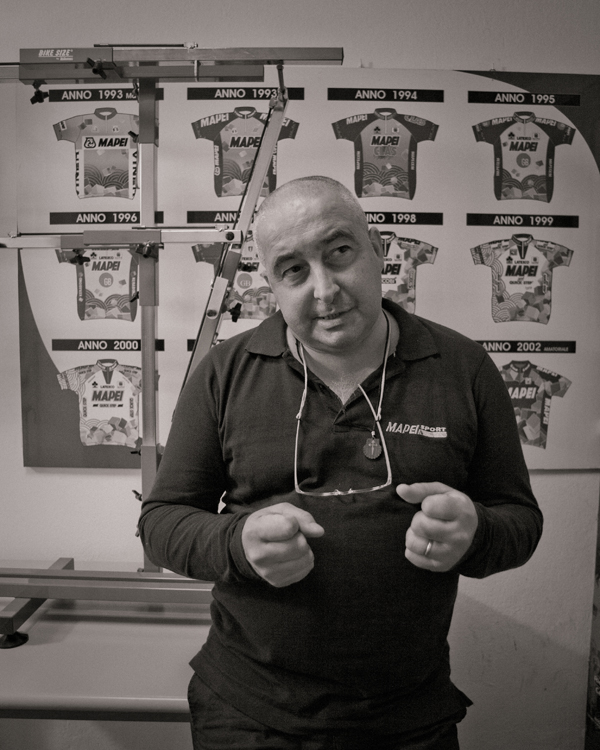
“When you have doubts that the results are not solely physiological, even without the proof, you are forced to choose your direction and give a signal. I want to sleep well, without any doubts. The classical 'preparatori', or old-school coaches mix training and pharmacological support, but I work only on training.
“When I start with a rider, I ask them to commit to my philosophy. When they come here with their team, like Lampre, I reach that commitment with the team. When the riders come here on their own, like Ivan Basso or Matt Lloyd, I talk with them directly about this.
“Every rider that comes here has to be committed to ride clean and be available for all the haemoglobin testing that we wish. If someone does not accept these, then we don't work with him. Maybe this is not enough to be sure they are clean, but it is a good start.”
CLARIFICATION
“A rider's goal has to be clear to me and shared amongst him and his team. I can go about creating a training programme for him once I know his racing schedule. Sometimes with the rider, I will suggest to the team to create a certain race schedule.
“Cadel Evans, for instance, needs a light first half of the season because his goals have been at the Giro d'Italia and Tour de France, and that is a big intensive block. Also, he trains in Australia over the off-season and the weather there quickly improves his condition. This could be different for Cunego, who this year will have a strong focus on the April classics.”
MENTAL STRENGTH
“The mind is the driver of the machine. It motivates.
“An athlete has to work in a determined way as Ivan Basso did this year to prepare for the Giro d'Italia. It means that even when it is rainy and dark outside, as it is today at the Mapei headquarters, that you go out and train regardless. You have go out and complete your required training even when you think you are not doing well. It is on these dark days when the other riders lose their motivation to train and you can get the advantage, the mental advantage.
“Mental strength is the most important when it comes to time trials, where a strong head will truly prevail. The effort and the approach is very different with a road stage or a one-day classic. In time trials, you have to concentrate the entire time if you want to win or even do well. You are there, holding your aero position and if you feel pain in some particular part of your body then you must ignore it, to resist it or fail. It can be a terrible event because your mind has all the time in the world to wonder and let any small problem get out of control.”
PHYSIOLOGICAL ATTRIBUTES
“A cyclist has certain physiological attributes: VO2 Max, power output at anaerobic threshold, body fat per cent... It is like Formula 1: if you only have the driver and no car then you cannot win. You have to have the car as well as the driver. Some might try to show that if you have a good driver you could still win with a bad car. This is not true in cycling. Either you have to be able to produce six watts per kilogramme on the climbs or you lose.”
SELF-BELIEF
“Self-belief is very important. There are riders who don't believe in themselves and some of these riders fall into doping. Through doping, they believe they can find the magic aid to get results.
“I try to encourage and build my riders' self-belief by supplying them some reference data. I show them the numbers that I know is enough to guarantee results. I then prove it to them over an over in the lab, behind my motor bike or with the data I get back from the races that they compete in. I say, 'Look, here are the numbers, you can win race X or race Y.'
“If you are able to work for X amount of time at six watts per kilogramme then you will be competitive with the top riders at the Giro d'Italia or Tour de France. I get them to the level where they can produce that power and when they get it, they will trust themselves. Simply put, I am building their self-belief.
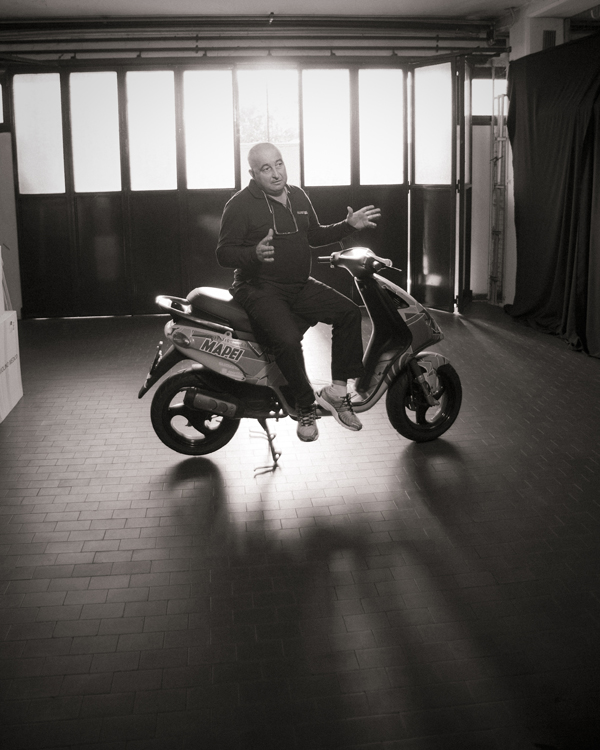
“Matt Lloyd had an impressive season this year with a stage win and the mountain classification jersey at the Giro d'Italia, but he is not always able to focus on his goals. If he was able to then he would be able to aim for a podium finish at the Giro d'Italia. Matt is an example of a cyclist who has the ability, but lacks self-belief and the commitment to pursue the goal. He needs to believe in himself, to believe that he can reach his goals.”
REDUCING STRESS
“Stress is a point that coaches and their athletes often leave untouched. A rider can suffer from stress before or during a race. Sometimes, there is an actual stress, but I am afraid that sometimes stress is just an excuse.
“Stress can come from directors, family, parents of young riders or even coaches. Once it is there, forget about it, your performance will be severely penalised. A lot of it depends on the rider's own psychological characteristics; some of us are always stressed and some of us are not.
“Some people say that Damiano Cunego stresses too much during stage races, which does not allow him to sleep enough and to recover properly. There is no way around it, you will certainly have problems when stress causes an imbalance in your normal recovery habits. The people around Cunego have warned me that this may be an issue and since we started working together this autumn, I have given it some thought.
“How do you combat it? You have to talk with the rider to put him in a more comfortable environment. If you are self-confident, you don't stress so much. I have tried different methods. I remember 20 years ago, I started to work with a technique called Autogenic Training, a relaxation method developed by Schultz [German psychiatrist Johannes Heinrich Schultz - ed.]. You tell the rider his legs are getting heavy, his arms are getting heavy and so forth. They start to relax. It had mixed results, though, and I stopped using it.
“We have to work as a team to set proper targets for Damiano Cunego. For example, we need to decide if it is good for him to target long stage races or the one-day races, the classics. The one-day races are less stressful than the long stage races, but that also depends on what a rider, not just Damiano, believes. If a rider is highly motivated for long stage races and you limit him to one-day races, then he will suffer.
“To avoid stress, the rider has to be consciousness of his capabilities and to put his targets at the right level. When you have targets related to your capabilities then you will be satisfied and not stressed. Otherwise, you will be stressed beyond believe trying reach an unobtainable goal.”
ANALYSE WELL
“Coaches have to try to monitor the rider's work and his response to it. This is where the science is not perfect, we are still far from having a good support or analysis method to manage a rider's workload. I receive data files from the riders daily – average and peak power outputs from their training and racing via the SRM files – and we draw blood when they come in to the Mapei Centre. However, it is difficult to quantify the work done and especially the kind of work that was done. Today, we have too much data coming in and not enough time to manage or to analyse it.”
MY RELEVANCE
“The relevance of a coach in cycling has to be considered only so much because the riders are the ones who perform, not the coach. I am not trying to sell myself out of a job, but just being honest.
“Probably the best sign of a good coach, though, is to choose his athlete well. I never search for cyclists, they have to find me if they are interested. Otherwise it means there is no motivation and if there is no motivation, it is only a waste of time for me and for the rider.
“When we had the Mapei team, it was mandatory to be tested and followed from the Mapei Centre, but was obvious that not all the riders did it that way. I did not have the possibility to pressure those who only followed the Mapei programme partially. After that experience, I accepted only athletes that asked to work with me.
“My first answer was usually, 'I am sorry, I have no time and I am not the best because if you work with me I will impose some limitations.' Like I said to Dario Cioni, 'If you want to go faster, the first thing you have to do is change your coach because you know that I work only on training. There are other preparatori who are better able to improve performances!' Fortunately, I had athletes like Cioni and Evans who said, 'No Aldo, we will only work with you.'
I think I made a good choice by selecting Ricardo Riccò – I am sure of it. He has the motor, the car, but the driver is not completely there. I am going to help him build his mental strength and self-belief. There are too many other coaches out there who want to try to improve his body's physiological response – that is not my job.
“I know he is a risky client, but sometimes you have to roll the dice to win big. If someone doesn't put faith in this sport, how can we make changes? Besides, Riccardo has a wife and child to support and needs help.
“The Mapei Centre is good because of its ethical approach and its attitude to coaching each cyclist as a man, as a person. This was our philosophy from the beginning. We have had tried to create a family, a hi-tech and science-based one. After the first day of testing here, the cyclist knows all of our staff, which gives them great self-confidence.”
THE BEST COFFEE I’VE EVER HAD
By Gregor Brown
This interview with Aldo Sassi coincided by the best coffee I have ever tasted. It came from a coin operated, push-button machine in the break room at his office in Castellanza in northern Italy. However, it was not the machine that made the coffee taste so well, it was Aldo's effort.
After about 30 minutes into the interview, Aldo's eyelids started to flicker shut. At first, I thought he was thinking of a good response to my questions and then I worried that my questions were boring. Truth is, he woke up at 2:30 the night before and had not been able to sleep, probably still struggling from his last round of chemotherapy a few days before to treat his brain cancer.
Doctors diagnosed Aldo in April after he felt strong headaches and immediately removed a tumour the size of two large strawberries. The surgery left a half-moon incision on the right side of his head the size of a grapefruit and some highly aggressive cancer cells. Those cells – if we are to believe statistics, and Aldo does – threaten to take his life by July.
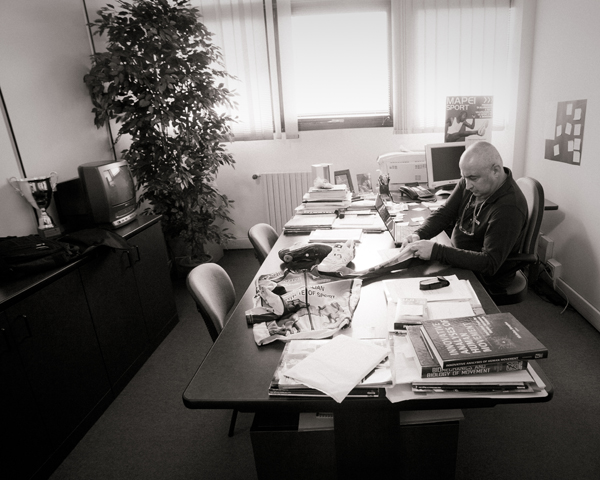
"Aldo," I say, "you want to take a break for a caffè?"
His eyelids raise open and he says, "You want a caffè?"
I went around the desk to help him get out of his chair, which is hard to do when you have lost partial control of your left side. He leant on the chair's right armrest, but without being able to counterbalance on his left side, it was a cumbersome task.
When I saw Aldo two months prior for a different interview, he complained about not being able to play guitar anymore. This time, though, it was clear that those vicious cancer cells and the treatment were further wearing down this gentle 51-year-old Italian.
I stood close as he went for the coffee machine because it looked as though he would stumble to the floor. He ran into chairs in the break room trying to squeeze by the water cooler. He fumbled to catch hold of the plastic cup's lip in the dispenser below and insisted that I not help. He took hold of the cup, put it under the spout and pressed the "caffè ristretto" button a couple of times, but nothing.
The machine needed token coins and it would require Aldo to make his way down the elevator and to the receptionist, which he did. He offered me the first cup of coffee, with a bag of sugar and a stirring stick. Then he made his – no sugar – and drank it.
While I drank mine, it was impossible not to think of the ever-growing monster which is tearing this kind man apart. How thoughts of his wife Marina and daughter Chiara continuing alone must haunt him at night. Though, Aldo tells me he finds strength from the love of so many people who he had not known previously and from his work helping his riders succeed, as Ivan Basso or Matt Lloyd did at the Giro d'Italia this year.
This interview first appeared in the January 2011 edition of Cycle Sport.
Follow Cycle Sport on Twitter: http://www.twitter.com/cyclesportmag

Thank you for reading 20 articles this month* Join now for unlimited access
Enjoy your first month for just £1 / $1 / €1
*Read 5 free articles per month without a subscription

Join now for unlimited access
Try first month for just £1 / $1 / €1
Edward Pickering is a writer and journalist, editor of Pro Cycling and previous deputy editor of Cycle Sport. As well as contributing to Cycling Weekly, he has also written for the likes of the New York Times. His book, The Race Against Time, saw him shortlisted for Best New Writer at the British Sports Book Awards. A self-confessed 'fair weather cyclist', Pickering also enjoys running.
-
 'It took everything' - Puck Pieterse outclimbs Demi Vollering to win La Flèche Wallonne
'It took everything' - Puck Pieterse outclimbs Demi Vollering to win La Flèche WallonneDutch 22-year-old shows Classics pedigree with first one-day victory
By Tom Davidson
-
 Tadej Pogačar flies to dominant victory at La Flèche Wallonne
Tadej Pogačar flies to dominant victory at La Flèche WallonneSlovenian takes second win at Belgian classic ahead of Kévin Vauquelin and Tom Pidcock
By Tom Thewlis
-
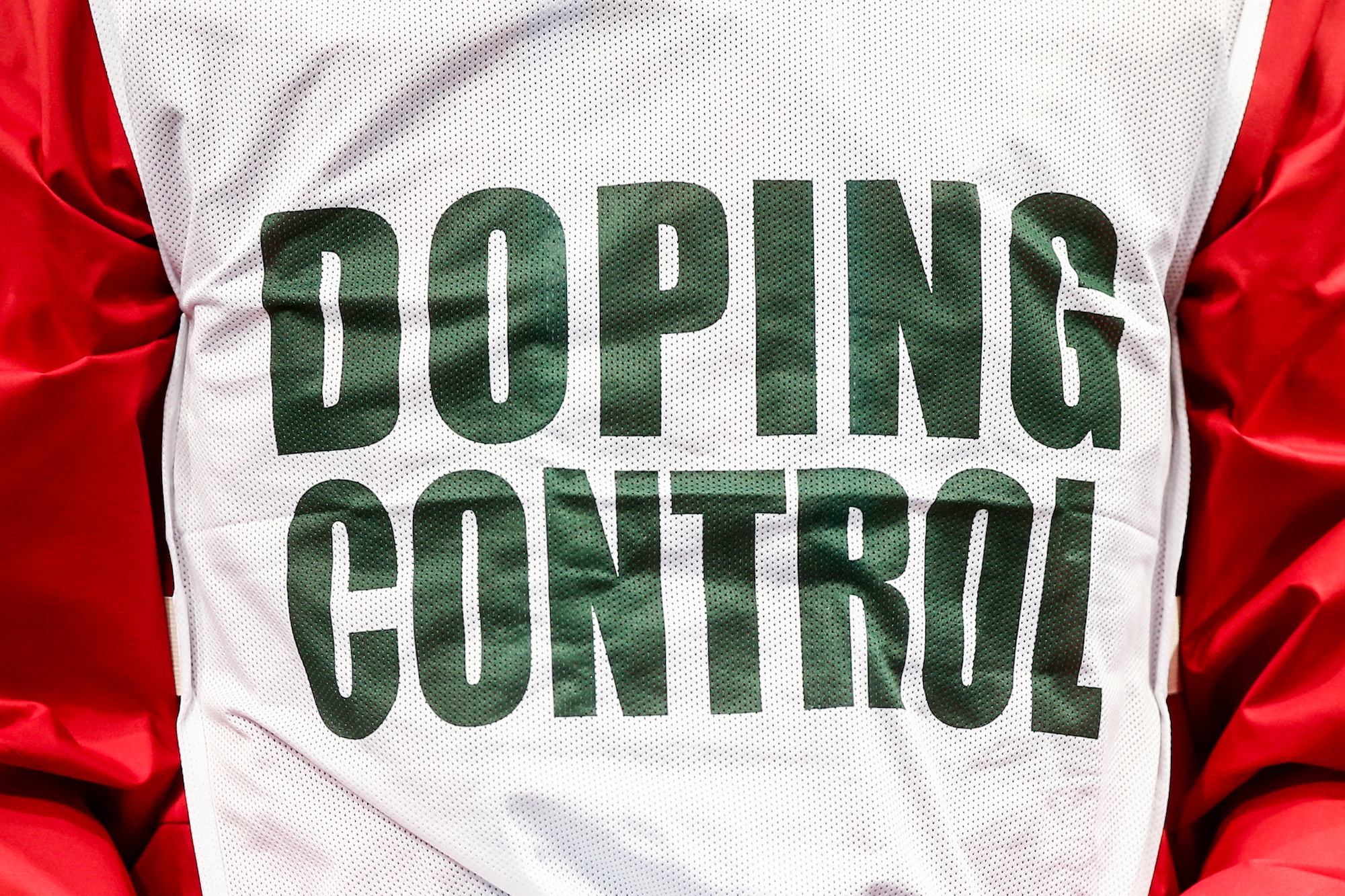 Irish Continental level professional cyclist suspended after EPO positive
Irish Continental level professional cyclist suspended after EPO positiveJesse Ewart, who rode for Terengganu Cycling, has been banned until 2027
By Adam Becket
-
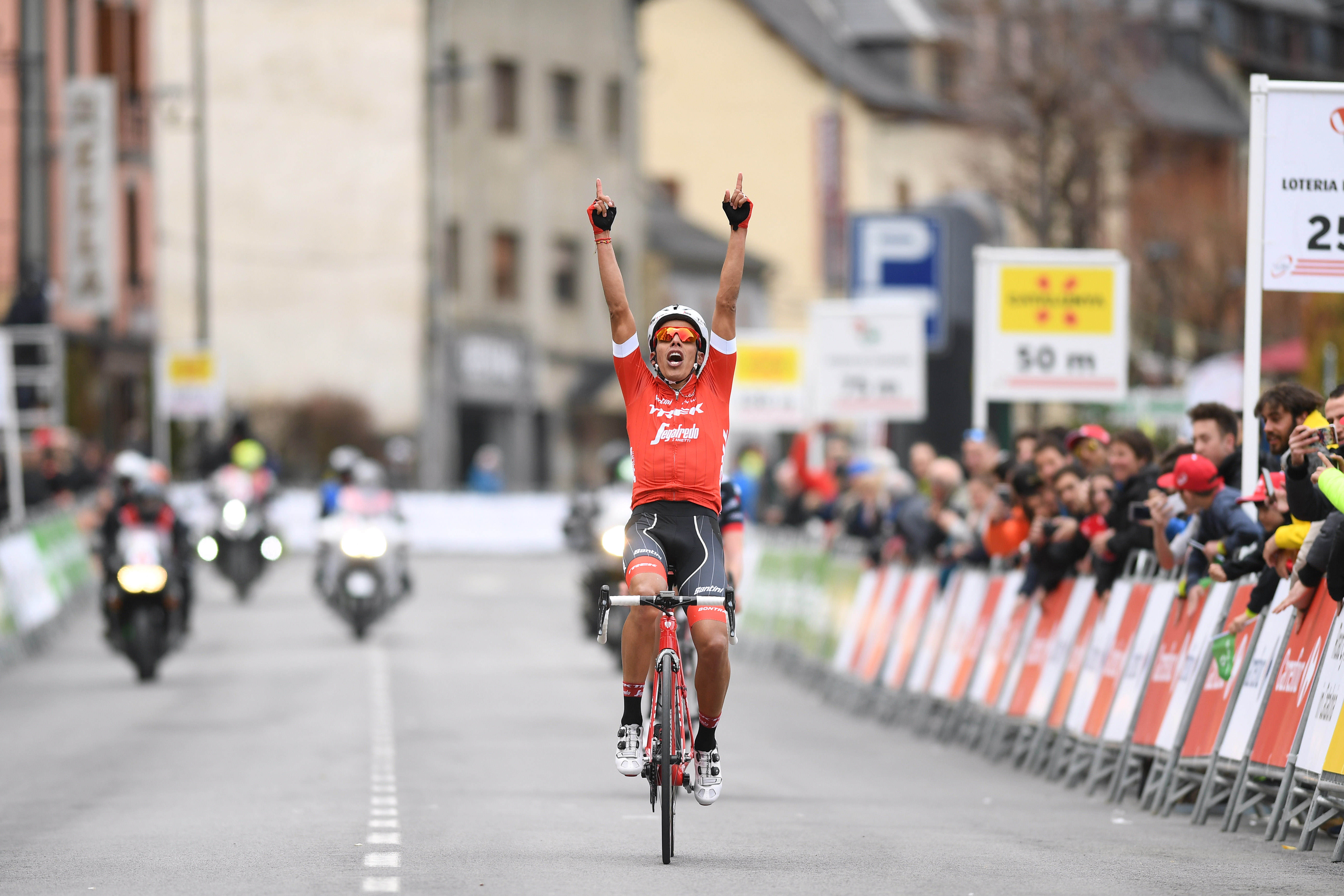 Convicted EPO doper Jarlinson Pantano returns to cycling with Colombian EPM team
Convicted EPO doper Jarlinson Pantano returns to cycling with Colombian EPM teamFormer Trek-Segafredo and IAM Cycling rider rejoins peloton after his four-year band expires
By Adam Becket
-
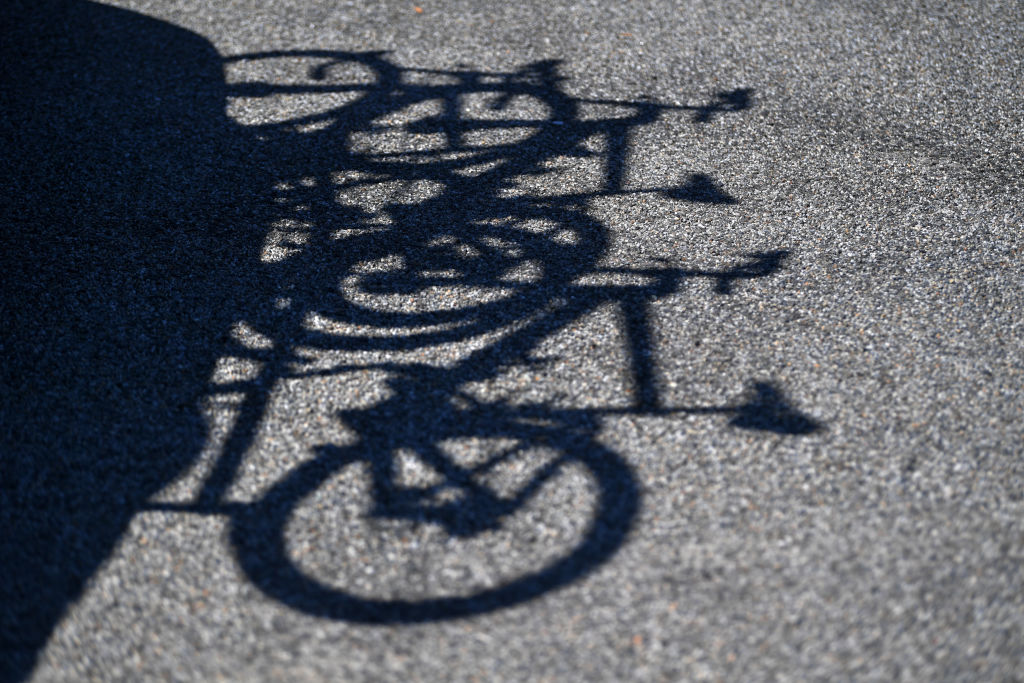 American cyclist Jackson ’Huntley’ Nash handed lifetime ban after doping violations
American cyclist Jackson ’Huntley’ Nash handed lifetime ban after doping violationsUSADA hand down penalty after multiple offences discovered by investigation
By Adam Becket
-
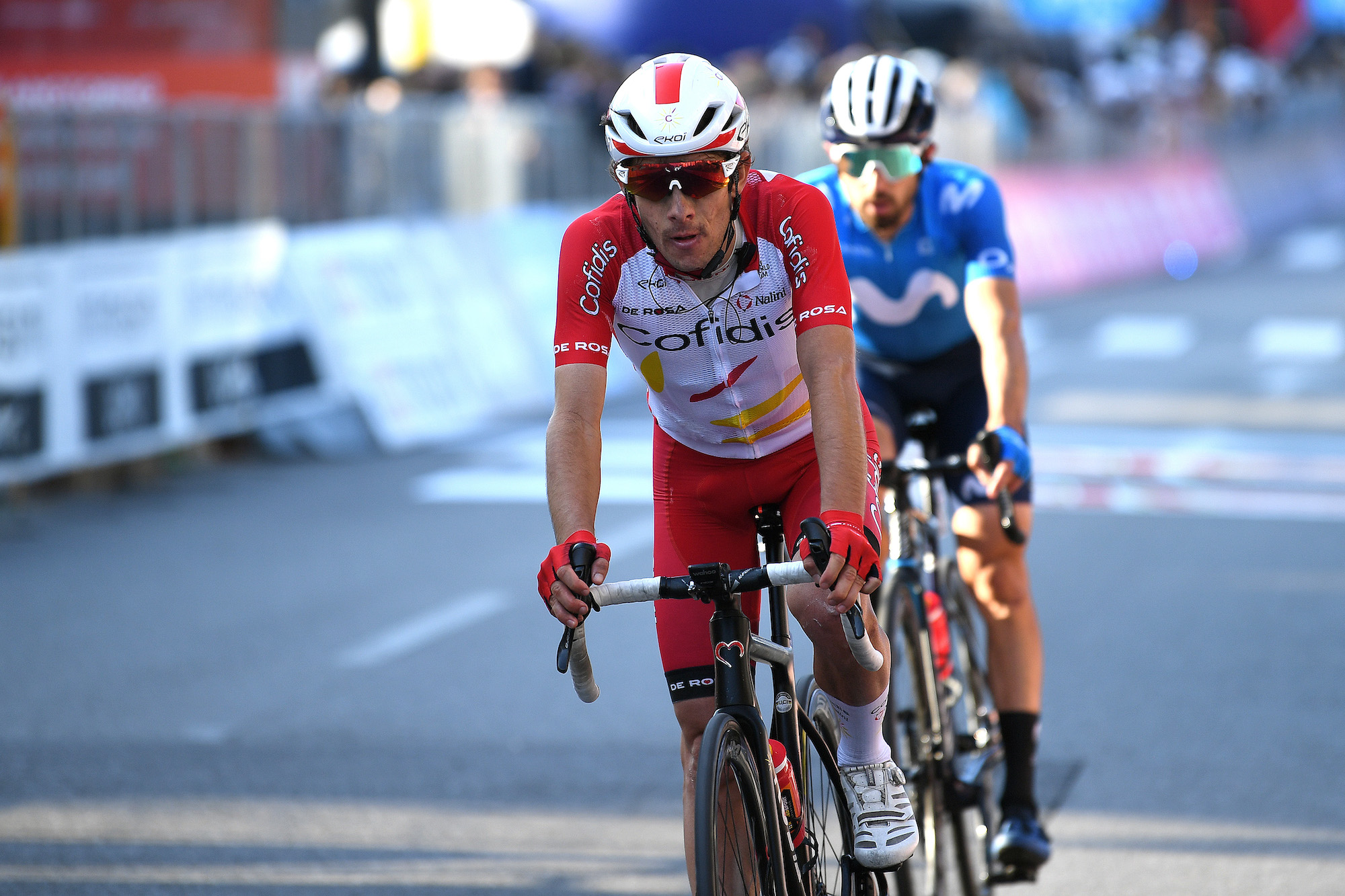 Guillaume Martin: The big question is this grey area of ketones
Guillaume Martin: The big question is this grey area of ketonesThe Frenchman says he is in favour of banning ketones for reasons of fairness
By Jonny Long
-
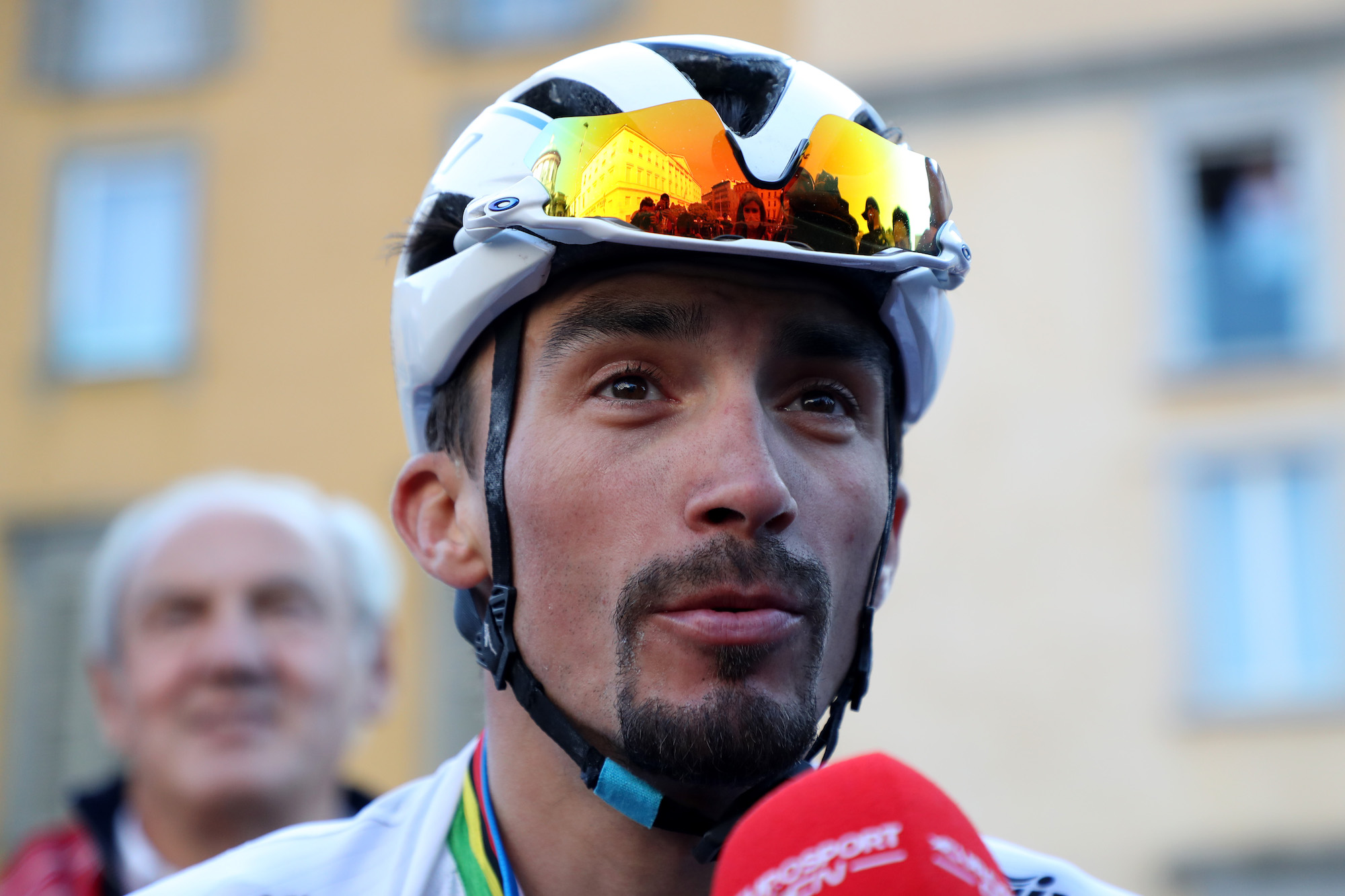 Julian Alaphilippe doesn't share Arnaud Démare's concerns over performance products used in the peloton
Julian Alaphilippe doesn't share Arnaud Démare's concerns over performance products used in the pelotonThe Frenchman also says he 'won't be shouting from the rooftops' when he eventually decides to compete for the Tour de France yellow jersey
By Jonny Long
-
 US amateur rider handed four-year doping ban after winning cat three race
US amateur rider handed four-year doping ban after winning cat three raceThe 49-year-old was tested after his win in the Arizona State Championships this summer
By Alex Ballinger
-
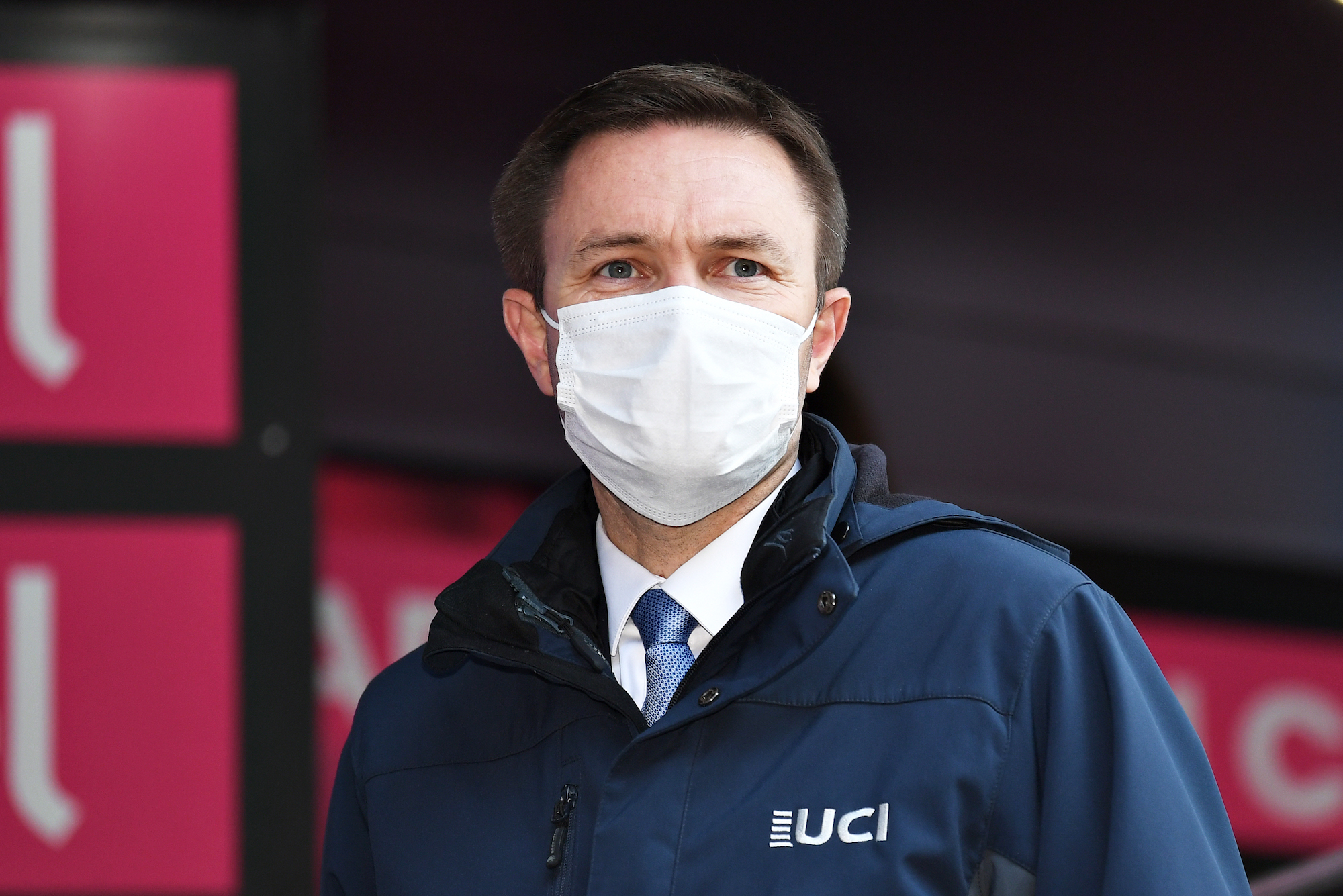 David Lappartient: Riders are sharing rumours of new doping techniques, they feel there is a gap
David Lappartient: Riders are sharing rumours of new doping techniques, they feel there is a gap"Man is limitless in the imagination to cheat," the UCI President said
By Jonny Long
-
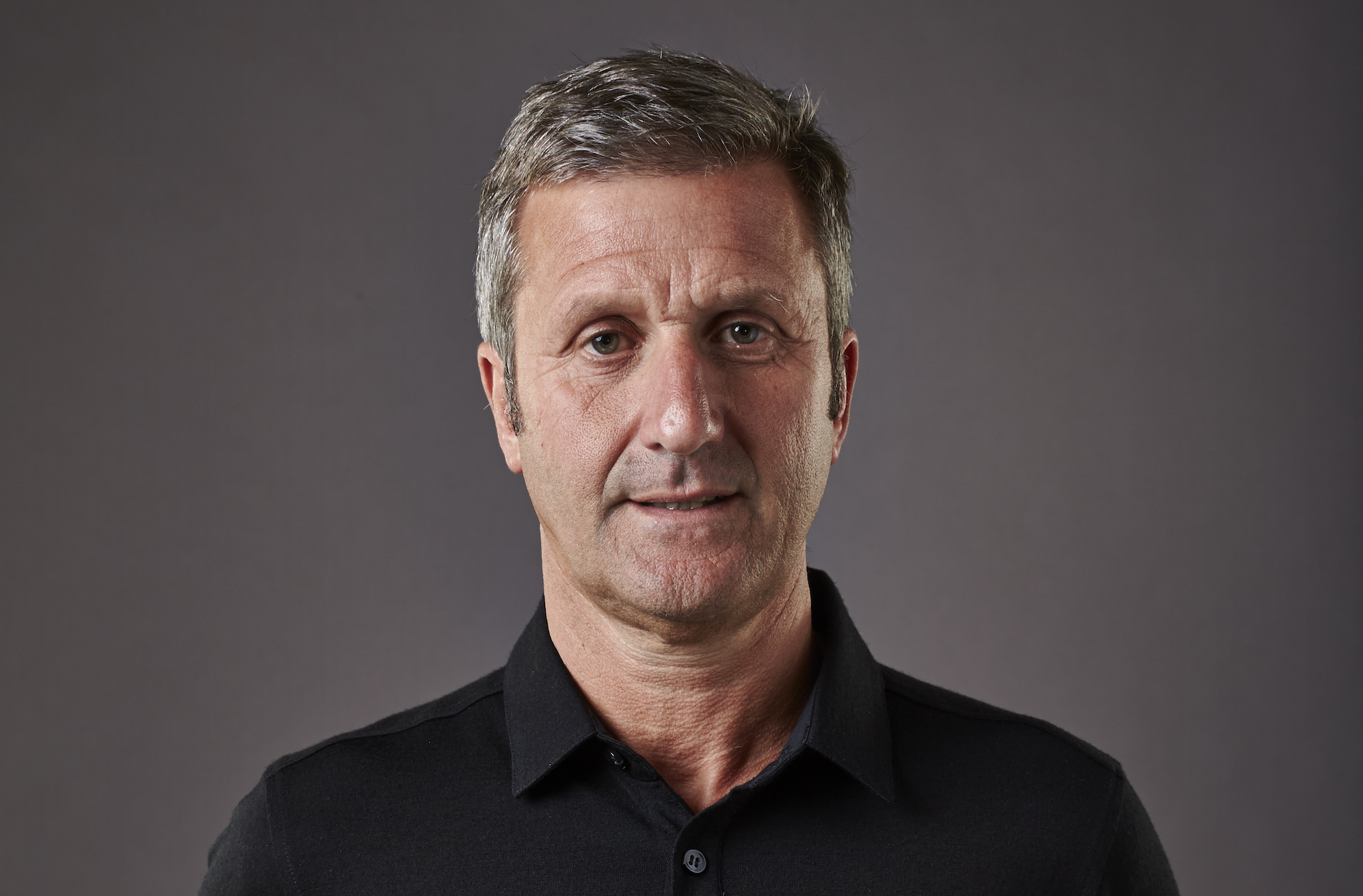 UK Anti-Doping's case against Richard Freeman paused after doping doctor appeals tribunal verdict
UK Anti-Doping's case against Richard Freeman paused after doping doctor appeals tribunal verdictUKAD will resume proceedings against Richard Freeman after his High Court appeal
By Jonny Long